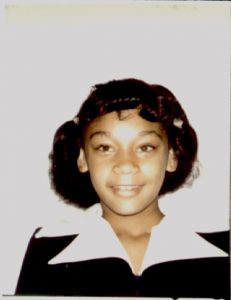
It’s been 40 years since that tragic day in November 1978, the day my family and loved ones were taken away from me, the day my entire world ceased to exist, the day I suffered the worst day of my teenage life.
Since that day, I have had to learn to live again without those whom I called family. Yes, I know people lose loved ones all the time. They, like I, have to learn to keep living without those loved ones with only the precious memories to sustain them.
My journey has been one of adjustment to the things I have not been used to.
Those who know about my Jonestown affiliation always ask me questions like: what is it that you miss the most; what did you hate about being there? I tell them, being a teenager at that time, I thought only about missing those things that you are supposed to do in your high school years – I won’t go to prom; I won’t walk across the stage wearing a cap and gown – and that’s honesty, because I was a young teen approaching that status in my life, and that’s all I knew that I wouldn’t be able to have.
We had school in Jonestown, but it wasn’t a regular school like in the States. That’s where my concentration was, that’s what I was thinking the day he first shouted “White Night,” that I would never be allowed to do any of those regular high school, teenage activities.
I am not oblivious to that to this day – in movies, on television, in comedy routines, even in some everyday conversations – people make comments about “drinking the Kool-Aid.” That gets me a little agitated, but I know that most people who use the catchphrase don’t always mean it in a derogatory way. Even those who know the expression came from Jonestown aren’t intentionally using it in a way to make us look stupid. At least, that’s what I want to think.
I was not in Jonestown that fateful day, but I am still filled with “survivor’s remorse.” Yet I must keep living. I must continue to write and tell of the good of everyone who were. They were good people, they were proud people, they believed they were standing for a new “freedom” that was promised to us but never achieved in the States; they had fought and they had shouted and they had hope that their voices had finally been heard, that Jim Jones had delivered the promise of “freedom” that had been promised to them for so many years. I know, because even at a young age, I was one of them. Our parents who knew the struggle and felt so adamant that Jones had delivered did not hesitate to move to Jonestown and get a piece of that dream.
There will come a day, I know, when I am no longer physically able to share my story. That’s why I want to let everyone coming along behind me know, that those were people of courage, strength, and most of all, “LOVE.” All they wanted was to be free from oppression.
They thought they were a part of the “Dream,” Martin’s dream, the “Dream of Freedom,” the “Dream” to live amongst each other of all racial and social backgrounds as one. As I think back, I consider that maybe it was a part of Martin’s “Dream,” but not the outcome, that he foretold. In his “Dream,” we walked as one, and we lived as one, but unlike Martin’s “dream for equality,” the people of Jonestown died as “One.” Martin Luther King never professed a “revolutionary suicide,” but my friends, my family, my people will forever be remembered for their courage and their strength to give up their lives for the “cause” for the freedom that they were told would no longer be theirs.
(Dawn Gardfrey was in Georgetown with her grandmother on November 18, 1978. Her other contribution to this edition of the jonestown report is Two Poems. Her complete set of writings on this site may be found here. She can be reached here.)